

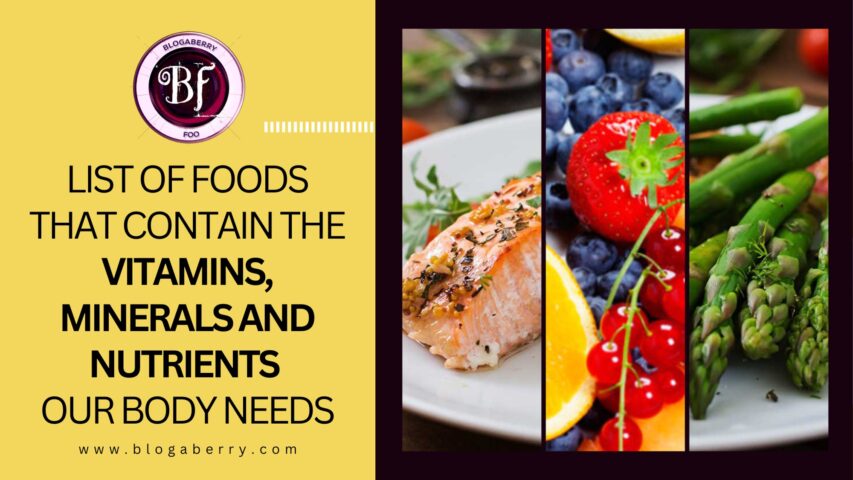
A little after I got married, I vowed to eat healthy as much as possible. That did not happen so I chose to hit the gymnasium, go for walks or exercise at home instead. When the latter ideas did not get implemented for more than a month each, I woke up one day, and decided that from then on, I would watch what I ate for the rest of my life. Not because I wanted to lose weight but because I wanted to be as fit and fine as possible.
Then, I had researched and made an elaborate list of vitamins, minerals and nutrients that we needed to consume on a regular basis in order to decrease the risk of various illnesses. This information helped with procuring the foodstuff mentioned and instilling healthy eating habits in my children, too. While I casually ate fruits along with the kids, they got used to eating them without any fuss. In fact, they can live on fruits the whole day.
Vegetables, on the other hand, are mostly tricky to get the kids to like once they grow older. But, like my mom, I hide the vegetables in various dishes. For example, when preparing mince recipes, I add ridge gourd, fenugreek leaves, carrots, capsicum or spinach in it. It is easy to overlook when the vegetables are chopped into the smallest cubes possible. This also works for the husbands who do not fancy vegetables. 😉
Therefore, below you will find a list of vitamins, minerals and nutrients as a quick guide for you to plan your meals well. Have a look at it and let me know what you mixed with what. I would love to identify some new or unique food combinations that I could try out as well.
Here are the vitamins, minerals and nutrients our body needs along with their benefits, results of deficiency or excess intake, and foodstuffs that are rich in them.
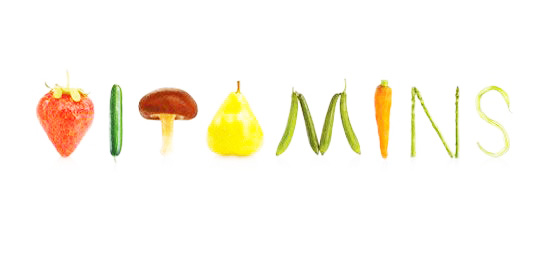
BENEFITS – Protects your eyes from night blindness, promotes healthy growth and reproduction and supports a healthy immune system.
FOODS – Carrot, Cantaloupe, Melon, Kale, Broccoli, Squash, Liver, Fish, Dairy products, Fenugreek, Spinach.
CAUTIONS – Deficiency can lead to night blindness and compromise the immune system. It can also cause rashes. Excess Vitamin A could lead to bone thinning, liver damage, headache, diarrhoea, nausea, skin irritation, joint pains and could also lead to birth defects. For us, if we consume cantaloupes directly from the fridge, we tend to get a sore throat so you could beware of that too.
BENEFITS – Helps to prevent infections and supports cell health, energy levels, good eyesight, healthy brain function, good digestion and healthy appetite. It also helps promote proper nerve function and growth of red blood cells.
FOODS – Whole grains, Lentils, Beans, Banana, Dark leafy vegetables, Sweet potato, Corn, Milk, Cheese, Eggs, Red meat, Poultry and Shellfish, Ridge gourd.
CAUTIONS – Deficiency of Vitamin B can lead to disruptions in the circulatory and nervous systems. Severe deficiency of Vitamin B12 can cause Megaloblastic Anaemia. Excess of Vitamin B complex could lead to excessive thirst, skin problems, blurry vision, abdominal cramps, nausea, vomiting, increased urination and diarrhoea.
BENEFITS – Also known as ascorbic acid, contributes to body functions such as the immune system, formation of collagen, absorption of iron, healing of wounds and the maintenance of cartilage, bones and teeth.
FOODS – Orange, Guava, Red and Green peppers, Kiwi, Grapefruit, Grapes, Berries, Brussels sprouts, Broccoli, Spinach, Cabbage, Cauliflower, Corn, Cantaloupe, Melon, Tomato, Mango, Papaya, Pineapple, Avocado.
CAUTIONS – Deficiency can cause general under-nutrition. But severe deficiency can result in Scurvy. Too much of Vitamin C is not really harmful but mega-doses of it may cause diarrhoea and nausea.
BENEFITS – Helps regulate the calcium and phosphate in the body.
FOODS – Besides receiving it from the sun, you can find Vitamin D in Eggs, Fish (salmon, tuna, mackerel and fish liver oils), Mushrooms and Tofu.
CAUTIONS – Deficiency can lead to bone deformities, which could result in osteoporosis and fractures in adults, and rickets in children. Rickets is a rare disease that causes the bones to become soft and eventually bend. Vitamin D toxicity, or excess of Vitamin D, causes nausea, weakness and frequent urination which could result in bone pain and kidney problems like calcium stones.
BENEFITS – As a group of fat soluble vitamins with antioxidant effects, Vitamin E helps protect your cells from damage. See here for more details.
FOODS – Vegetable oils (wheat germ, sunflower, safflower, corn, soybean), Almond, Peanuts, Hazelnut, Tomato, Sunflower seeds, Spinach, Broccoli.
CAUTIONS – Deficiency can result in numbness, muscle weakness and vision problems. Though large amounts of Vitamin E can cause no harm, the intake of more than 1000mg per day could also lead to bleeding, fatigue, nausea, diarrhoea and muscle weakness. It can also increase your risk of getting a stroke.
BENEFITS – Helps to make proteins necessary for normal blood clotting and building of bones.
FOODS – Kale, Spinach, Brussels sprouts, Broccoli, Green lettuce, Fenugreek leaves.
CAUTIONS – Deficiency can lead to nose bleeds and excessive bleeding from injuries and injections. Excess can lead to jaundice and anaemia due to the possible rupture of red blood cells.
BENEFITS – As it is a version of Vitamin B, called Folate, it helps in the formation of red blood cells (RBCs).
FOODS – Legumes, Asparagus, Green leafy vegetables (cabbage, kale, spinach, peas, fenugreek), Broccoli, Brussels sprouts, Beans, Beetroot, Eggs, Citrus fruits
CAUTIONS – Deficiency leads to anaemia in adults and children. Excess of it can hide symptoms of Vitamin B deficiency, which can result in nerve damage and several other side effects.
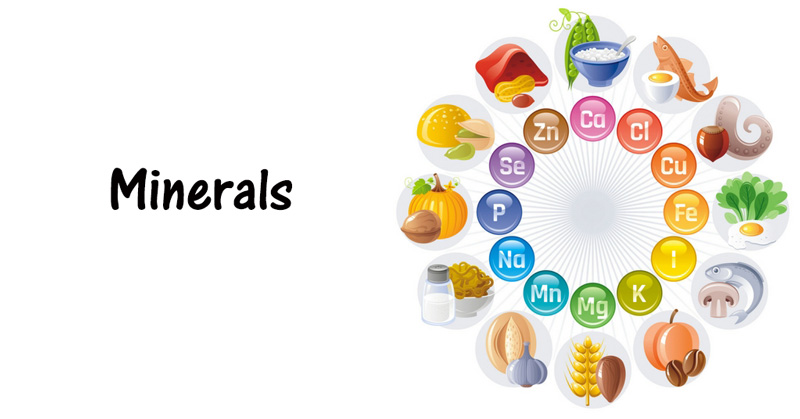
BENEFITS – Ca helps build and maintain bone strength. It also helps in the proper functioning of muscles, nerves and the heart.
FOODS – Milk, Cheese, Yogurt/Curd, Kale, Okra, Spinach, Sardines, Ragi
CAUTIONS – Deficiency can occur at any age and could result in rickets, osteoporosis and osteopenia. It could also cause chest pains, numbness in fingers and toes, muscle cramps, brittle nails, dry skin, tooth decay and disruptions in the metabolic rate. Excess of Ca can weaken your bones and cause kidney stones. Hypercalcemia could interfere with the working of your brain and heart.
BENEFITS – Haemoglobin (Hb/Hbg) is the protein that carries oxygen throughout your body and gives the red colour to the RBCs. Fe is essential for making haemoglobin. According to Holland And Barrett, Fe helps support the immune system, maintain energy levels and regulate the body temperature.
FOODS – Shellfish (clams, oysters, mussels), Red meat, Organ meats (liver, kidney, heart), Tuna, Spinach, Legumes, Pumpkin seeds, Quinoa, Turkey, Broccoli, Tofu.
CAUTIONS – Deficiency can cause anaemia which includes heart palpitations, headache, sore tongue, hair loss and pale skin. Excessive intake of Fe can lead to stomach ache, nausea, vomiting and constipation.
Check here for recipes – BAKED RAGI CHIPS
BENEFITS – It is required for DNA synthesis, immunity, metabolism and growth.
FOODS – Pork, Beef, Chicken, Oyster, Tofu, Cashew nuts, Lentils, Spinach
CAUTIONS – Deficiency can lead to growth retardation, loss of appetite and impaired immune function. In severe cases, it could result in hair loss, diarrhoea, delayed sexual maturation, impotence and eye or skin lesions. Excess of Zn intake can cause abdominal pain, nausea, headache, irritability, lethargy, anaemia and dizziness.
BENEFITS – It helps with muscle and nerve function as it is involved in multiple biochemical reactions in the body. It regulates blood pressure and supports the immune system too. It is also known to help fight migraines and depression.
FOODS – Pumpkin seeds, Roasted almonds, Boiled spinach, Roasted cashews, Roasted peanuts.
CAUTIONS – Deficiency can result in muscle aches, uncontrollable tremors, weak bones and bad headaches. It can also lead to low levels of Calcium and Potassium. Excessive use of Mg can cause problems like digestive issues, lethargy and irregular heartbeats. Mg toxicity is rare in otherwise healthy people.
BENEFITS – It is an essential trace mineral effective for improving the body’s insulin levels and lowering blood sugar in diabetic patients. It also influences your protein, carbohydrate and fat metabolism.
FOODS – Vegetables (broccoli, potato, green beans), Whole grains, Beef, Poultry, Apples, Bananas, Grape, Milk and Dairy products
CAUTIONS – Cr deficiency is a worldwide concern. Pregnant women, athletes, diabetics and the elderly are at a risk of compromised insulin function, inhibition of protein synthesis and low energy production. There are no reported cases of complications due to excessive intake but extremely large doses may lead to stomach problems, very low blood sugar or kidney damage or liver damage.
BENEFITS – As one of the most important minerals in the body, Potassium regulates the fluid balance, nerve signals and muscle contractions in the body. A high Potassium diet can help reduce water retention and blood pressure, prevent kidney stones and osteoporosis as well as protect one against strokes.
FOODS – Banana, Orange, Cantaloupe, Honeydew, Apricot, Grapefruit, Cooked Spinach and Broccoli, Leafy vegetables, Mushroom, Beans, Lentils, Tuna, Orange juice, Tomato juice, Prune juice, Sweet Potato, Zucchini, Pumpkins.
CAUTIONS – Deficiency can cause fatigue, tingles and numbness, heart palpitations, breathing difficulties and mood changes. Excess of Potassium can result in mere muscle cramps, aches and stiffness. On the other hand, Hyperkalaemia can lead to dangerous or deadly changes in heart functions.
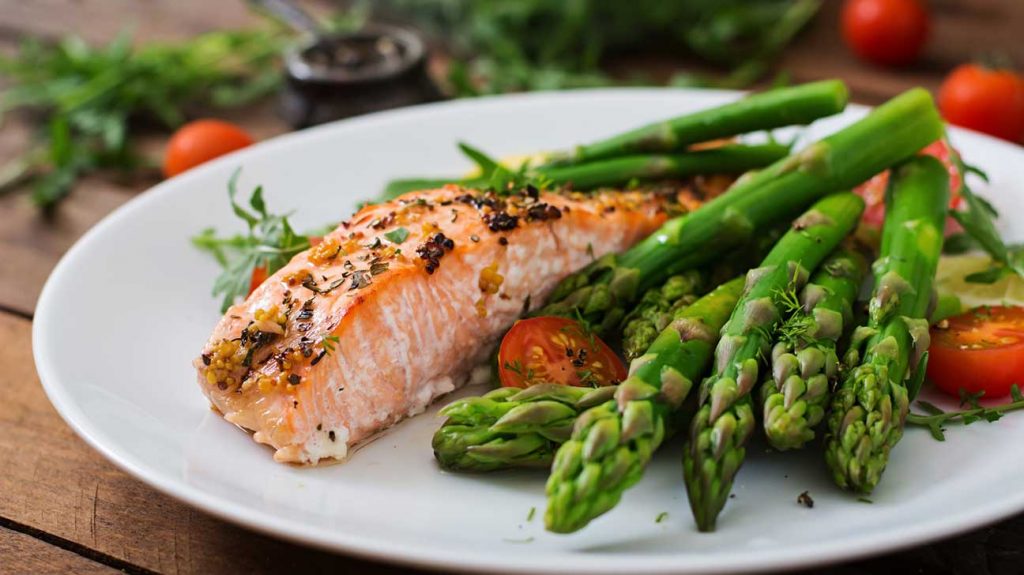
BENEFITS – As building blocks of the bones, muscles, cartilage, skin and blood, proteins build and repair tissues. They also serve as a fuel source and help make enzymes, hormones and other body chemicals.
FOODS – Lean meats (beef, lamb, veal, pork, kangaroo), Poultry (chicken, turkey, duck, emu, goose), Fish and Seafood (fish, prawns, crab, lobster, mussels, oysters, scallops, clams), Eggs, Milk, Yogurt (including Greek yogurt), Cheese
CAUTIONS – Deficiency of proteins in the body can lead to malnutrition and could result in mental illness, organ failure, abnormal function of muscle tissues, swelling and damaging the immune system. Sever cases can lead to diseases like Kwashiorkor and Marasmus. Also, our body does not accept extra protein efficiently, so excess consumption could lead to a metabolic burden on the bones, kidneys and liver. Due to the presence of saturated fat and cholesterol in regular high protein diets, intake of excess protein can result in coronary heart diseases too.
BENEFITS – Though many diets forbid the consumption of carbohydrates, this basic food is important in a healthy diet. It is the main source of energy that fuels our brain, kidneys, heart muscles and central nervous system.
FOODS – Oatmeal, Quinoa, Sweet potato, Brown rice, Milk, Legumes, All vegetables, Whole fruits (banana, apple, strawberry, etc.), All types of nuts (almond, walnuts, hazelnuts, peanuts, etc.), Seeds (Chia, Pumpkin).
CAUTIONS – Deficiency of carbohydrates interfere with the working of the nervous system and could lead to dizziness and mental or physical weaknesses. Hypoglycemia is a condition where your body’s main energy source (glucose/blood sugar level) is compromised. Carbs in their natural, fibre-rich form are generally healthy. Processed foods with sugar and refined carbs are extremely unhealthy. Excess carbohydrates (especially the ones not mentioned above) with no way of burning it, can lead to weight gain, poor metabolism and increased risks of heart diseases.
BENEFITS – Important for the digestive tract to work smoothly. Helps prevent constipation.
FOODS – Oatmeal, Whole grains, Beans, Nuts, Apple, Berries, Citrus fruits, Pear, Avocado, Banana, Carrot, Beetroot, Broccoli, Artichoke, Ridge gourd
CAUTIONS – While deficiency of fibre can cause severe constipation, excess intake of fibre can also cause bloating, gas, diarrhoea and constipation.
BENEFITS – It helps lower blood pressure, reduce triglycerides and the risk of heart problems. It also helps to raise dopamine levels in the brain which trigger arousal.
FOODS – Fish and other seafood (mackerel, salmon, herring, oysters, sardines, anchovies, caviar), Nuts and Seeds (flax, chia, walnuts), Plant oils, Cod liver oil, Soybeans, Spinach, Kale.
CAUTIONS – Deficiency can lead to dry skin, brittle hair and thin nails. Excess intake leads to very low blood pressure, blood thinning, excessive bleeding, increased risk of bruising, high blood sugar, diarrhoea, acid reflux, stroke, insomnia and Vitamin A toxicity. At times consuming fish oil can cause belching, bad breath, heartburn, nausea, diarrhoea, rash, nosebleed, therefore many patients are suggested to use fish oil supplements instead, in order to reduce side effects.
(I have deliberately left out mentioning what are the excess amounts, mentioned online, that could result in issues in the body because all our bodies are unique and may have different tolerance levels to each vitamin, mineral and other nutrients stated above).
As you can see, all the important vitamins, minerals and nutrients required to keep our body healthy are mentioned above. This summary was intended to have all the information in one place, so, it was easy to know what I should include in my diet every day. Though I cheat and have junk sometimes, I make sure I mostly resist that temptation, especially at home and consume healthy foods instead.
Do comment below on your thoughts about this article. Hope this helps some of you, too.
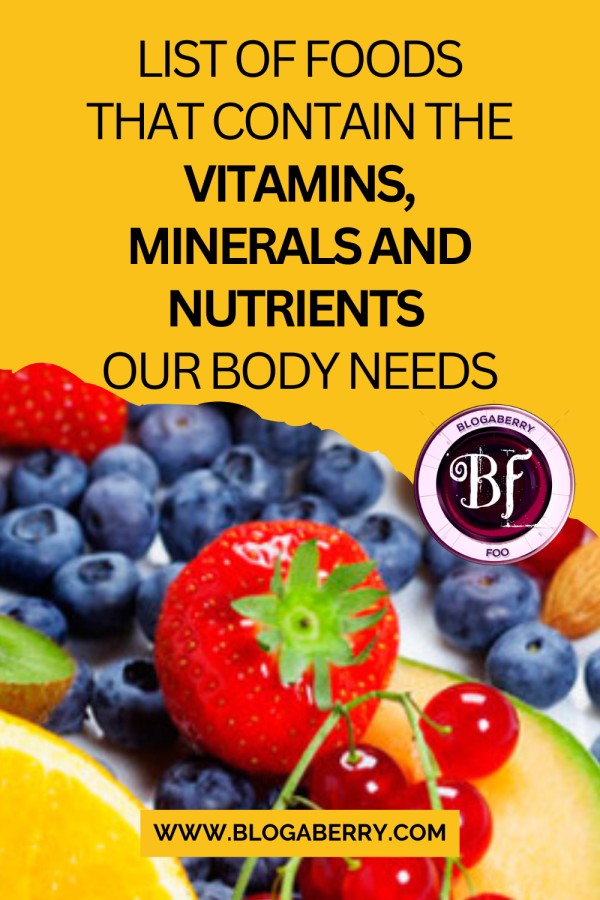
Thanks to HealthLine, a lot of information was procured from there.
This blog is a part of #LetsBlogWithPri #LBWP Season 2. You can also read Sanandita’s Blog about A Contradiction of Popular Opinion (Doshobhuja) and Amritha’s Blog on the Benefits of Ragi MILK.
Hosted By : Prisha Lalwani Mummasaurus.com
IG: @mummasauruss
FB: /mummasaurus1
26 Comments
[…] else, fibre should not be overconsumed. We need to add other micro and macronutrients such as vitamins and minerals important for our body. Therefore, along with our chappatis, we make sure to eat a lot of […]
[…] fibre should not be overconsumed. We need to add other micro and macronutrients such as vitamins and minerals important for our body. Therefore, along with our chappatis, we make sure to eat a lot of […]
[…] can also find the list of foods that contain the essential nutrients our body needs in Cindy’s blog here. I would now like to introduce Avin who is a well known food blogger. You can find her post about […]
Perfect list and very concise. I have Vit D deficiency as I live in Belgium with very little sunshine. have to take meds for it.
This is a perfect list for me. My husband is a fitness fanatic and always tries to get me to eat healthy and workout. While working out everyday is still quite a challenge, I can at least watch what I eat. Loved this post. In fact, am bookmarking it. This will be very helpful while I plan my meals every day. Thank you so much for sharing Cindy.
You’re welcome Ramya!
That’s very detailed information about both benefits and side effects of excess intake of food that contains vitamins minerals and antioxidants.
This is such an informative post Cindy, We often forget the importance of micronutrients but they are so important for our body and immunity.
This is really one stop post for all nutrients ..Very well written and researched post.. I am happy that kids love all fruits and not fussy for any vegetables and fruits!! Thanks for sharing
That’s a very well researched post, Cindy. I like that you tried to share as much necessary information as possible without making it look overloaded. This will be so helpful for people looking for a list of healthy foods, it will also help in choosing the food as per the nutrients & their benefits.
This is a very well researched and a detailed post. Loved how u have mentioned each item with all the required information. Luckily my kids specially eat all veggies n fruits so I am glad their major nutrients and vitamins are taken care of.
First of all, what a well-researched post this is. It shows how much effort you have put in while writing it and it is indeed helpful for many of us. Thank you for sharing this, I have marked it and will be referring to it in the future as well.
Nice blog Cindy! You’ve covered all the essential nutrients under one roof and one can easily plan healthy yet delicious meals from it. I love healthy food provided it has variety and some non-veg on the side. Will definitely plan my meals in a better way now.
This post is insightful. I love how you have shared all aspects of nutrition here. It’s really important to understand what food we consume. Thanks for sharing such a well researched post.
Wow what a post Cindy. Loved every part of it. I agree eating healthy and balance diet required a sort of pre planning and you have to keep a watch on things what you are eating everyday. My little one is a fussy water. After reading this post feeling inspired to try more innovative ways to include more fruits and veggies in her routine diet.
I’m glad that a doctor is quite impressed with my post. Thank you so much.
What a well-research post. It is always good idea to know about what we are eating. Being watchful of our eating habits has a long lasting effects on our health. Happy to read that your kids are into fruits. It is the best snack option for kids.
Yes fruits are our favourite!
Very good post. Highly informative. Keep up the good work.
Loved your post. So much information. Great share!
Really informative! Am glad you took the initiative to jot down everything in a single post.
Much needed guide for all of us. Loved the way you have presented it. It is so easy to find exactly what I want. Sharing it and pinning too. Thanks for putting all the efforts to bring it all together
Wow!! Humbled by the pin! Thank you so much!
This was a great read. Very well researched and nicely done blog
Wow, what a well researched and detailed post Cindy. Being a vegetarian, we consume all the fruits and vegetables at home. Luckily, my son loves fruits and veggies. So I never had to hide it or mix it with anything
These nutrients, vitamins and minerals are so very important for the body. I loved the way you have presented the blog with so much details about each and every nutrients, their source, etc.
Thank you so much Amritha!